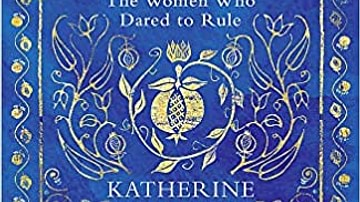Search Articles
Browse Content (p. 66)

Article
Sailing on Lake Nasser towards Abu Simbel
In ancient times, the First Cataract at Aswan marked the southern frontier of Egypt. Beyond lay the land of Nubia, which stretched along the river Nile from the First Cataract southwards for about 250 kilometres (155 mi). This region, known...

Interview
Interview: Queens of Jerusalem, the Women Who Dared to Rule by Katherine Pangonis
Join World History Encyclopedia as they chat with medievalist Katherine Pangonis, all about her new book Queens of Jerusalem, the Women Who Dared to Rule. Kelly: Do you want to start off by telling us what your book is all about? Katherine...

Article
Marie Dentière's A Very Useful Epistle
A Very Useful Epistle (Epistre tres utile, 1539) is an open letter by the female reformer Marie Dentière (l. c. 1495-1561) to Marguerite of Navarre (l. 1492-1549) advocating for a greater role for women in the work of the Protestant Reformation...

Article
Pizan's The Status of Women & the Reformation
The Book of the City of the Ladies (1405) by Christine de Pizan (l. 1364 - c. 1430) is considered by many scholars to be the first work of feminist literature, predating A Vindication of the Rights of Women (1792) by Mary Wollstonecraft by...

Article
Affair of the Diamond Necklace
The affair of the diamond necklace (1784-86) was a scandal that centered around Queen Marie Antoinette of France (l. 1755-1793). Although the queen was innocent of any involvement in a plot to steal a luxurious diamond necklace, the scandal...

Article
Ten Women of the Protestant Reformation
Women played a vital role in the Protestant Reformation (1517-1648) not only by supporting the major reformers as wives but also through their own literary and political influence. Their contributions were largely marginalized in the past...

Article
Hernando de Soto's Expedition to La Florida (1539-1542)
The Spanish explorer Hernando de Soto (c. 1500-1542) landed on the west coast of Florida on 30 May 1539, hoping to find wealthy kingdoms to conquer and plunder. His crew journeyed for over four years in southeastern North America, savaging...

Interview
Interview: When Money Talks by Frank Holt
Join World History Encyclopedia as they talk to Frank Holt about his new book When Money Talks: A History of Coins and Numismatics published by Oxford University Press. Kelly (WHE): Thank you so much for joining me today. Do you want to...

Article
The Three Estates of Pre-Revolutionary France
Society in the Kingdom of France in the period of the Ancien Regime was broken up into three separate estates, or social classes: the clergy, the nobility, and the commoners. These classes and their accompanying power dynamics, originating...

Article
French Involvement in the American Revolution
The involvement of France in the American War of Independence (1775-1783) was not only significant in the progress of the war itself but also as a critical moment for France. Whereas French intervention in the war would help turn the tide...